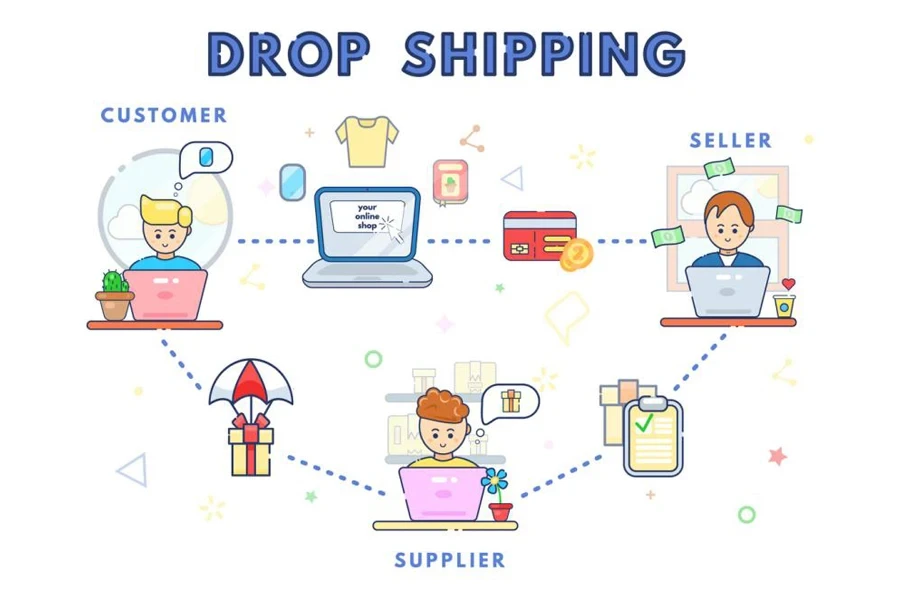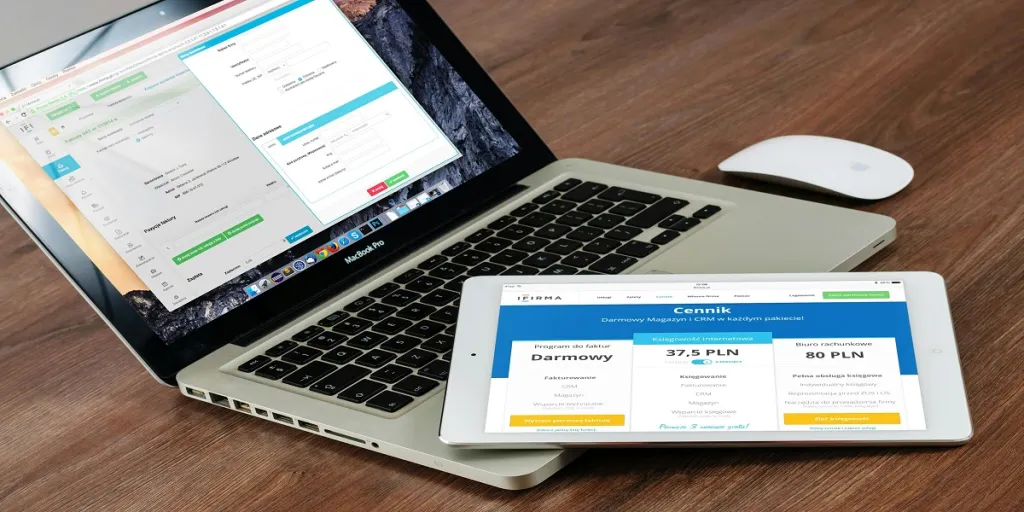If you’re reading this, you’re likely asking yourself the question, is it possible to start a business with no money? You may have a great idea but no start-up capital, and that’s okay! Starting your own business without any money might seem impossible now, but countless entrepreneurs have done it, proving that you don’t necessarily need financial help to become a profitable business. In fact, what is arguably much more important is creativity, resourcefulness, and a willingness to put in the work.
Here, we’ll explore some practical steps you can take to turn your business idea into reality, even if you’re starting with little to no investment.
Table of Contents
Step-by-step guide to starting a business with no money
Additional tips for starting a business with little money
Get started today
Step-by-step guide to starting a business with no money
1. Find the right business idea

While you may have a good idea for a business, you’ll need to choose a business model that doesn’t require a large upfront investment. Service-based online businesses can be a good choice since they typically require little to no initial capital.
However, there are many types of businesses that don’t require much money to get started. For example:
- Freelancing: Skills like writing, graphic design, web development, and marketing can be turned into a freelancing business with minimal equipment – you just need a computer and an internet connection.
- Consulting: If you have expertise in a particular field, consulting is another low-cost option. You can start by offering advice to individuals or businesses in areas like finance, business strategy, or health and wellness.
- Dropshipping: With dropshipping, you can sell products through an online store without ever holding inventory. You simply partner with a supplier who ships products directly to your customers.
2. Do market research and create a business plan

Before investing your time, do your research to determine if your business idea is viable.
Market research helps you understand your target market, competition, and industry trends. Research what already exists on the market and weigh up the competition to pinpoint your unique selling point and determine market demand.
A business plan outlines your business goals, strategies, and how you plan to achieve them. It’s essential for securing funding, guiding your strategy, and measuring success. Your business plan should include:
- Business overview
- Summary of market research
- Marketing plan
- Financial plan
3. Bootstrap your way to success
Starting a business with little money often requires doing much of the heavy lifting in terms of workload yourself. For some, this may mean maintaining their current full-time job while testing out a new business in their free time. This is common for many small business owners.
Here are some tips on how to bootstrap your way to success:
- Start small: Begin by offering a basic version of your product or service. As you generate revenue, you can reinvest in your business to improve and expand.
- DIY as much as possible: Until you can afford to hire help, take on as many roles as you can – be your marketer, accountant, customer service representative, and everything in between.
- Use existing assets: Do you have a car? Use it for deliveries or transportation. Do you have a spare room? Turn it into an office or storage space. Make the most of what you already have.
Remember it’s okay to start small and scale up slowly over time.
4. Leverage free resources and tools

There are many free or low-cost resources available that can help you get your business off the ground:
- Website builders: Platforms like WordPress, Wix, and Squarespace offer free or low-cost options to create a professional-looking website. With 78% of consumers researching products online before buying, a website or online presence via apps is crucial for any business.
- Social media: Use social media platforms like Instagram, Facebook, and LinkedIn to promote your business. It’s free to create accounts and start building an audience.
5. Network and build relationships

Networking is a powerful tool for growing your business without spending money. It can open doors to new opportunities, partnerships, and customers. Some recommended ways to do so include:
- Attend free events: Many communities offer free networking events for entrepreneurs. These can be valuable for making connections and learning from others in your field.
- Join online communities: Participate in forums and social media groups related to your industry. Offer advice, share your experiences, and build relationships with potential customers or partners.
- Leverage your existing network: Don’t be afraid to reach out to friends, family, and colleagues for support. They can provide referrals, feedback, and even volunteer their time to help you get started.
6. Consider alternative funding options

While this guide focuses on starting a business with little money, there may come a time when you need some startup capital to grow. Here are some funding options that don’t require traditional loans or investors:
- Supportive networks: If you have loved ones who believe in your business idea, they might be willing to provide financial support. This could be in the form of a low- or no-interest loan or even a grant. It’s essential to document the terms in writing to ensure everyone understands the agreement, and this helps to avoid any potential misunderstandings down the road.
- Grants: While grants can be challenging to secure, they do offer non-repayable funding that can significantly boost your business. These grants are often available through federal and state governments, as well as community development organizations. It’s worth researching and applying for grants that align with your business objectives.
- Venture capitalists: Venture capitalists are professional investors who offer funding in exchange for equity in your business. To secure this type of investment, you’ll typically need to present a comprehensive business plan and financial statements. This funding option is ideal if you’re looking to scale your business rapidly and are open to sharing ownership.
- Angel investors: Unlike venture capitalists, angel investors use their own money to fund your business. They often take a personal interest in your success and may provide mentorship as you navigate the early stages of your venture. Angel investors can be a great resource if you need both capital and guidance.
- Crowdfunding: Crowdfunding allows you to raise money by appealing directly to potential customers or supporters. In exchange for their financial contribution, you offer unique perks or promises, such as early access to your product or a special edition. Online platforms like Kickstarter, Fundly, and SeedInvest make it easy to launch a crowdfunding campaign and reach a broad audience.
- Small business loans: Small business loans are available through banks, credit unions, and online lenders. These loans typically require good credit and may offer favorable rates and terms. If you have a solid credit history and a clear plan for how the loan will help your business, this could be a viable option for securing the funds you need to get started.
7. Manage your finances wisely

It’s crucial to manage your finances carefully, especially when you’re starting with little money. Here are some tips on how to manage your finances to help keep your business moving forward:
- Keep personal and business finances separate: Open a separate bank account for your business. This makes it easier to track expenses and income, and is essential for tax purposes.
- Reinvest profits: Instead of spending your profits, reinvest them back into your business. This might mean buying better equipment, hiring help, or expanding your product line.
- Budget carefully: Create a detailed budget for your business and stick to it. Look for ways to cut costs without sacrificing quality. For example, you might negotiate better rates with suppliers or use free software instead of paid options.
- Business credit card: You may also want to consider getting a business credit card that can provide you with perks for business expenses.
Additional tips for starting a business with little money
Starting a business with little money is a big undertaking and can feel overwhelming, but remember it isn’t impossible. Here are some additional tips that may help you along the way:
Focus on providing value
One of the most effective ways to grow your business with little money is by focusing on providing exceptional value to your customers. When you exceed customer expectations, you build loyalty and generate word-of-mouth referrals – both of which are free forms of marketing.
Here are some ways you might consider providing value:
- Offer outstanding customer service: Go above and beyond for your customers. Respond to inquiries promptly, resolve issues quickly, and make every customer feel valued.
- Deliver high-quality products or services: Ensure that what you’re offering is top-notch. When customers are satisfied, they are more likely to return and recommend your business to others.
- Create valuable content: Share your expertise through blog posts, videos, or social media posts. This helps build trust with your audience and positions you as an authority in your industry.
Adapt and pivot as needed
Flexibility is key to starting a business with no money. As you grow, you may need to adapt or pivot your business model based on customer feedback, market trends, or financial constraints.
Additionally, if your original idea isn’t working, don’t be afraid to change direction. Many successful businesses started as something entirely different before finding their niche.
Here are some things to pay attention to in order to ensure you stay adaptable in the beginning stages of starting your business:
- Listen to your customers: Pay close attention to what your customers are saying. Their feedback can provide valuable insights into what’s working and what needs improvement. You could elicit this feedback through surveys or simply pay attention to what people are saying about your business on social media.
- Monitor industry trends: Stay informed about what’s happening in your industry. If you notice a shift in consumer behavior or technology, be ready to adapt your business to stay relevant.
Stay persistent and positive
Finally, remember that starting a business with no money is challenging, but it is incredibly rewarding when you succeed. Persistence and a positive mindset are crucial to overcoming obstacles. Here’s how you can stay positive and persistent even as you face challenges in starting your business with no money:
- Stay focused on your goal: Keep your end goal in mind and stay committed to your vision. There will be setbacks, but each one is an opportunity to learn and grow.
- Celebrate small wins: Recognize and celebrate your achievements, no matter how small. Each step forward is progress toward your goal.
- Keep learning: Continuously educate yourself about entrepreneurship, your industry, and new business strategies. Take online course or engage in webinars; the more knowledge you have, the better equipped you’ll be to navigate challenges.
Get started today
Starting a business with little to no money requires determination, creativity, and resourcefulness. By choosing the correct business model, leveraging free resources, and focusing on providing value, you can build a successful business from the ground up.
Remember, many of today’s largest companies started with little to no funding – what sets many successful entrepreneurs apart is their ability to turn limitations into opportunities.
Ready to turn your business idea into reality? Head over to Chovm.com to find high-quality products, suppliers, and tools that can help you launch and grow your business. Whether you’re sourcing inventory, finding dropshipping partners, or exploring manufacturing options, Chovm.com has everything you need to succeed.




